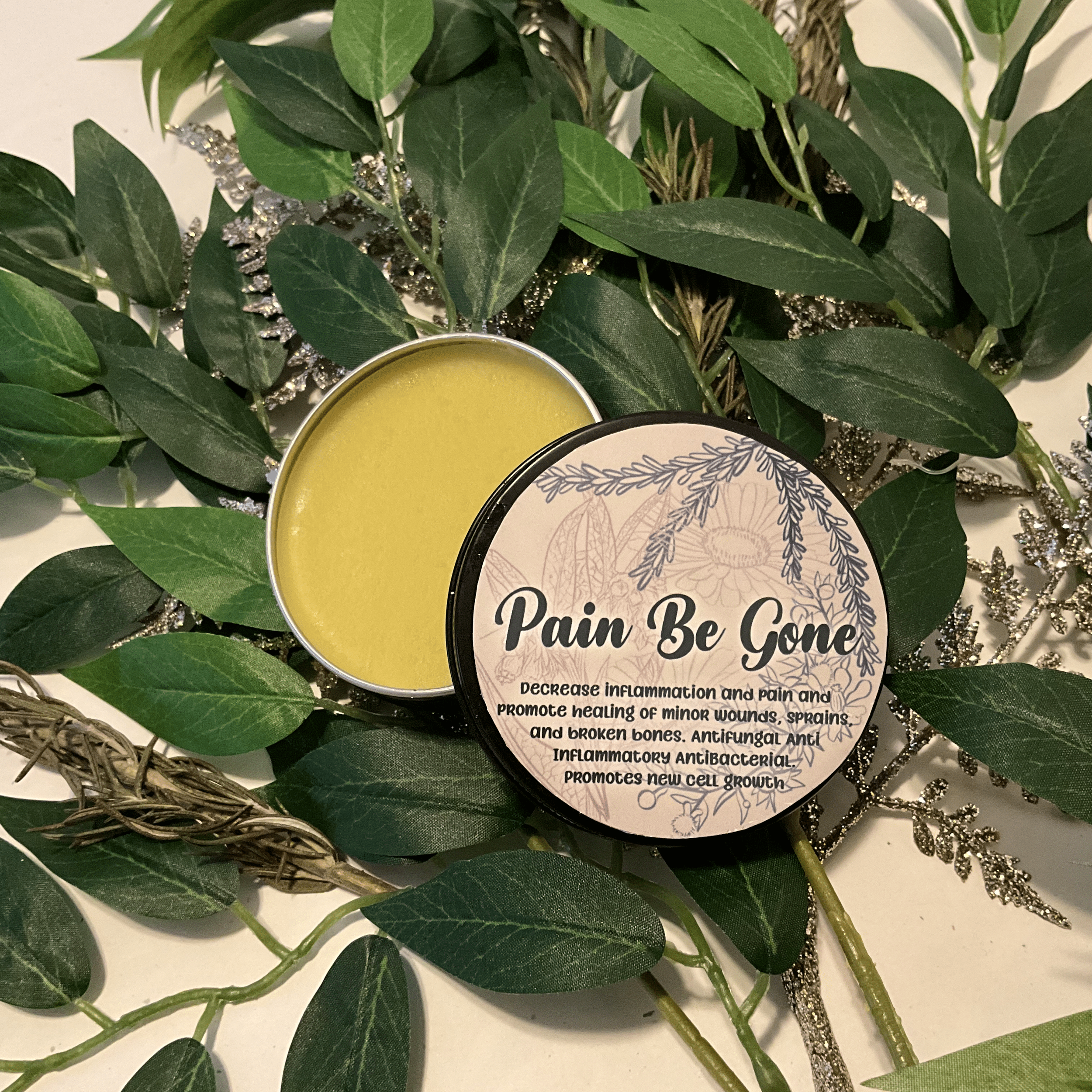Herbal Product Care
Herbal Infused Beeswax Salve Care Instructions and Tips
Storage: Ideal storage temperatures are between 50°F and 70°F to maintain consistency and potency. *The worst place to leave your chapstick or salve is inside your car. Every extreme temperature fluctuation will shorten the lifespan of your salve.
Location:Keep your salve in a cool, dry place. Avoid storing in areas with direct sunlight or frequent temperature fluctuations, such as near windows, ovens, or refrigerators.
Use Clean Hands: Always use clean, dry fingers or a spatula to scoop out the salve. Avoid introducing moisture or contaminants, which can lead to spoilage.
Seal Tightly: After each use, ensure the lid is closed securely to prevent exposure to air, dust, and bacteria. this will also keep it from leaking if it’s left in a hot place.
Avoid Water Contact: Keep the salve dry; avoid dipping wet fingers directly into the container to prevent mold growth.
Shelf Life Tips:
Our salves include added Vitamin E, which effectively doubles their shelf life by preventing oxidation.
Proper temperature control and hygiene can further extend the product’s usability, often beyond the typical 9-12 months. Most of our salves last up to 24 months.
If the salve changes color, texture, or develops an off odor, discontinue use.
Following these simple care instructions will help your herbal infused beeswax salve to remain effective and safe for longer.
How to tell if my salve has gone bad?
A salve that has started to go bad will smell different, you will also notice a thicker layer forming on the exposed parts of the salve. For desperate needs, you may scrape away the thicker section and use the unaffected salve underneath. Then purchase a replacement salve and discard of the spoiled one.
Herbal Infused Oil Care and tips
Herbal infused oils are a natural way to harness the benefits of herbs for skincare, massage, or culinary use. Proper care and storage are essential to keep these oils fresh, potent, and safe for use. Our oils are sold for topical use. All ingredients are listed.
Cool, Dark Place: Store oils in a cupboard or pantry away from heat sources and direct light.
Location: Avoid storing in areas with frequent temperature fluctuations, such as near windows, ovens, or refrigerators.
Avoid Contamination: Use a clean dropper. Do not touch the dropper to skin or mouth.
Small amounts of vitamin E oil are added to stabilize the infused oil by preventing oxidation and extend shelf life.
How to tell if my oil has gone bad
Off or rancid smell
Cloudy appearance or sediment not typical for the oil/herbs used
Mold or unusual growth inside the bottle
Change in color or texture
Herbal Tincture Storage Instructions
Temperature: Keep the tincture in a cool, dark place away from direct sunlight and heat sources. Room temperature (between 60–75°F) is ideal.
Seal: Ensure the bottle is tightly sealed to prevent evaporation and contamination.
Location: Avoid storing in areas with frequent temperature fluctuations, such as near windows, ovens, or refrigerators.
How to Tell If Herbal Tincture Has Gone Bad
Smell: A fresh tincture should have a strong, herbal aroma infused with the vodka base. If it smells sour, musty, or off, it may have spoiled.
Appearance: Check for discoloration beyond the normal color range of the herbs used. Cloudiness, sediment that was not there initially, or mold growth are signs of spoilage.
Taste: If it tastes excessively bitter, rancid, or unpleasant, avoid using it.
Expected Shelf Life: Typically, herbal tinctures in vodka last 3 to 5 years if stored properly. After this time, potency may decrease even if it appears fine.
If you notice any signs of spoilage, discard the tincture and buy a fresh batch.
Home Kitchen Arizona Disclaimer
The salves, oils, and other products sold on this website have been made in a home kitchen located in Arizona. This kitchen operates under the Arizona Cottage Food License regulations and is not subject to standard commercial kitchen inspections. Products may come into contact with common allergens. By purchasing these products, you acknowledge and accept that they were prepared in a non-inspected, home-based environment.
While every effort is made to ensure product safety and quality, Connected apothecary makes no guarantees regarding compliance beyond the scope of Arizona cottage food laws. Customers should understand that home kitchens have different standards and regulatory requirements compared to commercial facilities.
If you have concerns about allergies, product safety, or regulatory compliance, please consult with appropriate health professionals or regulatory authorities. Use of these products is at your own discretion and risk. Connected Apothecary and its affiliates assume no liability for adverse reactions or outcomes related to the use of our home kitchen-prepared products.
